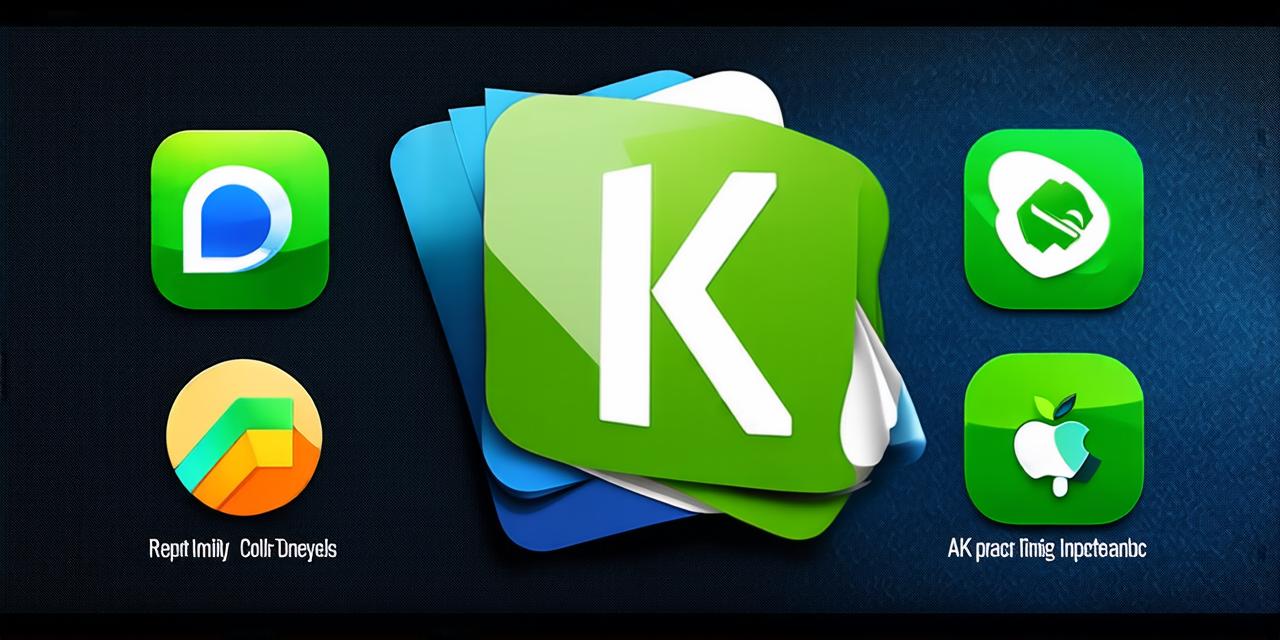What tools are used for developing mobile apps?
Introduction
The mobile app market is a highly competitive and constantly evolving landscape. With millions of apps available on both the Apple App Store and Google Play Store, it can be challenging for newcomers to break into this lucrative industry. However, with the right tools in your arsenal, you can streamline your development process and create high-quality, user-friendly apps that will stand out from the competition. In this article, we’ll explore the top tools used by app developers, including IDEs, frameworks, testing tools, and analytics platforms.
IDEs: Integrated Development Environments
An integrated development environment (IDE) is a software application that provides a comprehensive set of programming tools for developing apps. IDEs often include code editors, debuggers, and other development tools in one user interface. Here are some of the most popular IDEs used by app developers:
Xcode
Xcode is Apple’s official IDE for developing iOS and macOS apps. It includes a variety of features such as Swift syntax highlighting, debugging tools, and code completion. Xcode also integrates with other Apple development tools such as Interface Builder and Instruments.
Android Studio
Android Studio is Google’s official IDE for developing Android apps. It provides a variety of features such as Kotlin syntax highlighting, code completion, and debugging tools. Android Studio also integrates with other Google development tools such as Gradle and Firebase.
Visual Studio Code
Visual Studio Code is an open-source IDE that can be used for developing apps on both iOS and Android platforms. It includes features such as syntax highlighting, code completion, and debugging tools. Visual Studio Code also supports a variety of plugins and extensions that can enhance its functionality.
Unity Editor

Unity Editor is a game engine that can also be used to develop mobile apps. It provides a visual interface for creating 2D and 3D games and includes features such as physics simulation, animation tools, and scripting support. Unity Editor also supports cross-platform development, allowing developers to create apps for iOS, Android, and other platforms with a single codebase.
Frameworks: Building Blocks for Mobile App Development
Frameworks are pre-built sets of software components that app developers can use to build their apps more efficiently. Frameworks provide ready-made solutions to common development tasks such as user interfaces, data storage, and networking. Here are some of the most popular frameworks used by app developers:
React Native
React Native is an open-source framework for building cross-platform mobile apps with JavaScript. It uses a bridge to communicate between the JavaScript code and the native platform’s APIs, allowing developers to write code once and deploy it on both iOS and Android platforms. React Native provides features such as built-in components, state management, and debugging tools.
Flutter
Flutter is Google’s open-source mobile development framework that uses a combination of Dart and Skia, a graphics engine, to build apps for both iOS and Android platforms. It includes features such as a rich set of widgets, performance optimization, and hot reload support. Flutter also supports testing on multiple devices and emulators, making it easier for developers to test their apps.
AngularJS
AngularJS is a popular open-source JavaScript framework used for building web applications, including mobile apps. It includes features such as data binding, routing, and dependency injection that make it easy to build complex applications. AngularJS can be used with other technologies such as HTML, CSS, and JavaScript, making it a versatile choice for app development.
Testing Tools: Ensuring Quality in Mobile App Development
Testing tools are essential for ensuring the quality of mobile apps. They help developers identify and fix bugs, performance issues, and other problems before users can experience them. Here are some of the most popular testing tools used by app developers:
XCUITest
XCUITest is Apple’s official testing framework for iOS and macOS apps. It includes features such as automated UI testing, performance testing, and security testing. XCUITest also integrates with other Apple development tools such as Xcode and Instruments.
Espresso
Espresso is an open-source testing framework for iOS and macOS apps that uses a simple API to automate UI testing. It includes features such as mocking, stubbing, and test data management. Espresso also integrates with other Apple development tools such as Xcode and CocoaPods.
Robotium
Robotium is an open-source testing framework for Android apps that uses a simple API to automate UI testing. It includes features such as mocking, stubbing, and test data management. Robotium also integrates with other Android development tools such as Android Studio and Gradle.
Appium
Appium is an open-source mobile app testing framework that can be used with both iOS and Android platforms. It uses a WebDriver protocol to automate UI testing, allowing developers to write tests once and run them on multiple devices and emulators. Appium also supports cross-platform testing on both iOS and Android platforms.
Analytics Platforms: Measuring Success in Mobile App Development
Analytics platforms are essential for measuring the success of mobile apps. They provide developers with insights into user behavior, app performance, and other key metrics that can help them improve their apps. Here are some of the most popular analytics platforms used by app developers:
Google Analytics
Google Analytics is a free web analytics service provided by Google that can be used to track website traffic and mobile app usage. It provides features such as real-time tracking, user behavior analysis, and goal setting. Google Analytics also integrates with other Google products such as AdWords and Firebase.
Firebase Analytics
Firebase Analytics is a free mobile analytics service provided by Google that can be used to track mobile app usage across both iOS and Android platforms. It provides features such as real-time tracking, user behavior analysis, and custom events tracking. Firebase Analytics also integrates with other
